Are you ready to hit the trails but feeling overwhelmed by the number of hiking shoes available?
Fear not! This guide is designed especially for beginners like you.
We will walk through everything you need to know to find the perfect pair of hiking shoes to kickstart your outdoor adventures.
Why Choosing the Right Hiking Shoes Matters
Finding the right hiking shoes is crucial for ensuring a safe and enjoyable hiking experience.
Poor footwear can lead to discomfort, blisters, and injuries.
Research shows that foot injuries are common among hikers, and a significant percentage of these can be traced back to inadequate footwear (Source: [American Orthopaedic Foot & Ankle Society](https://www.aofas.org/)).
Good hiking shoes provide essential support, traction, and protection.
They help you navigate various terrains, from rocky paths to muddy trails, which is especially important for beginners who may not have developed the skills to manage tricky conditions.
Key Features to Look for in Hiking Shoes
1. Comfort and Fit
Comfort is paramount when choosing hiking shoes.
A good fit minimizes the risk of blisters and discomfort, allowing you to focus on the adventure.
When trying on shoes, consider going half a size up to account for swelling during hikes.
According to a study by the [Journal of Foot and Ankle Research](https://jfootankleres.biomedcentral.com/articles/10.1186/s13047-019-0370-1), fit is one of the most critical factors in foot health during physical activities.
2. Traction
Traction is essential for maintaining grip on diverse surfaces.
Look for shoes with a rubber outsole and deep lugs for better traction on rocky or uneven trails.
Some brands leverage advanced technologies like Vibram rubber, known for its superior grip and durability, making it a popular choice among experienced hikers.
3. Support
Adequate arch and ankle support can help prevent injuries.
Shoes with stiff midsoles provide better support and stability, especially on rough terrain.
Beginners may benefit from a mid-cut design, which offers additional ankle support compared to low-cut shoes.
4. Weight
Lightweight shoes can enhance your hiking experience by reducing fatigue over longer distances.
Modern materials allow for the manufacture of lightweight yet durable hiking shoes, making them more accessible for beginners.
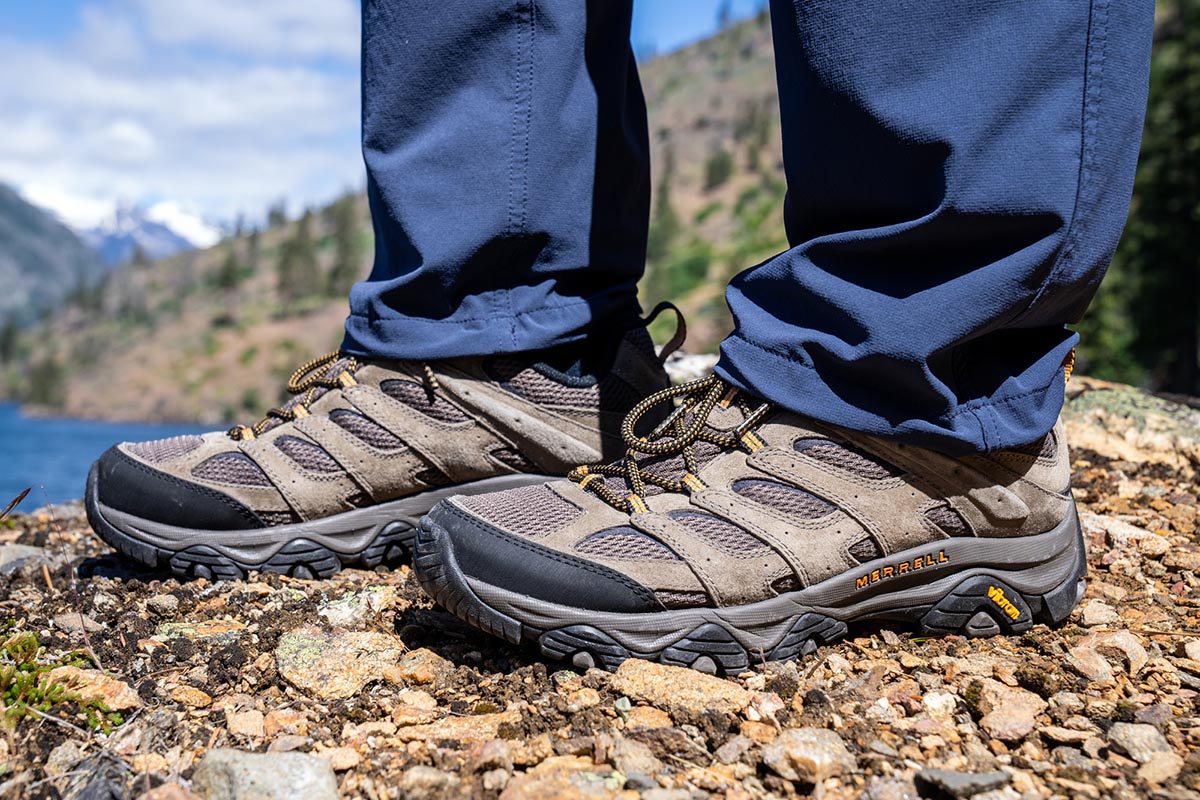
Top Hiking Shoes for Beginners: A Comparison Table
| Model | Type | Weight | Support | Traction | Price |
|---|---|---|---|---|---|
| Merrell Moab 2 Ventilator | Low-cut | 2 lb 5 oz | Moderate | Excellent | $100 |
| Salomon X Ultra 3 GTX | Mid-cut | 2 lb 8 oz | High | Very Good | $160 |
| Adidas Terrex Swift R2 GTX | Low-cut | 1 lb 14 oz | Moderate | Excellent | $150 |
| KEEN Targhee III | Mid-cut | 2 lb 4 oz | High | Very Good | $140 |
Real-World Experiences: Beginner Hikers’ Journeys
Case Study 1: The First Hike with Merrell Moab 2
Sarah, a novice hiker, decided to test the Merrell Moab 2 Ventilator on her first hike in the Great Smoky Mountains.
She appreciated the shoe’s breathability and supportive fit, which allowed her to hike for hours without discomfort.
“I felt like I could conquer any trail,” she recalled. “The traction was impressive, even on slippery rocks.”

Case Study 2: Overcoming Challenges with Salomon X Ultra 3
John, another beginner, faced challenges on his first hike through a muddy area.
He wore the Salomon X Ultra 3 GTX and praised its waterproof feature and grip.
“Even when I stepped in a puddle, my feet stayed dry, and I never slipped,” he said.
This experience gave him the confidence to tackle more difficult trails in the future.
Tips for Selecting the Best Hiking Shoes
1. Know Your Terrain
Understanding the types of trails you will be hiking is key.
If you’re mostly on flat, well-maintained paths, lighter shoes may suffice.
More rugged terrains require durable shoes with better support and traction.
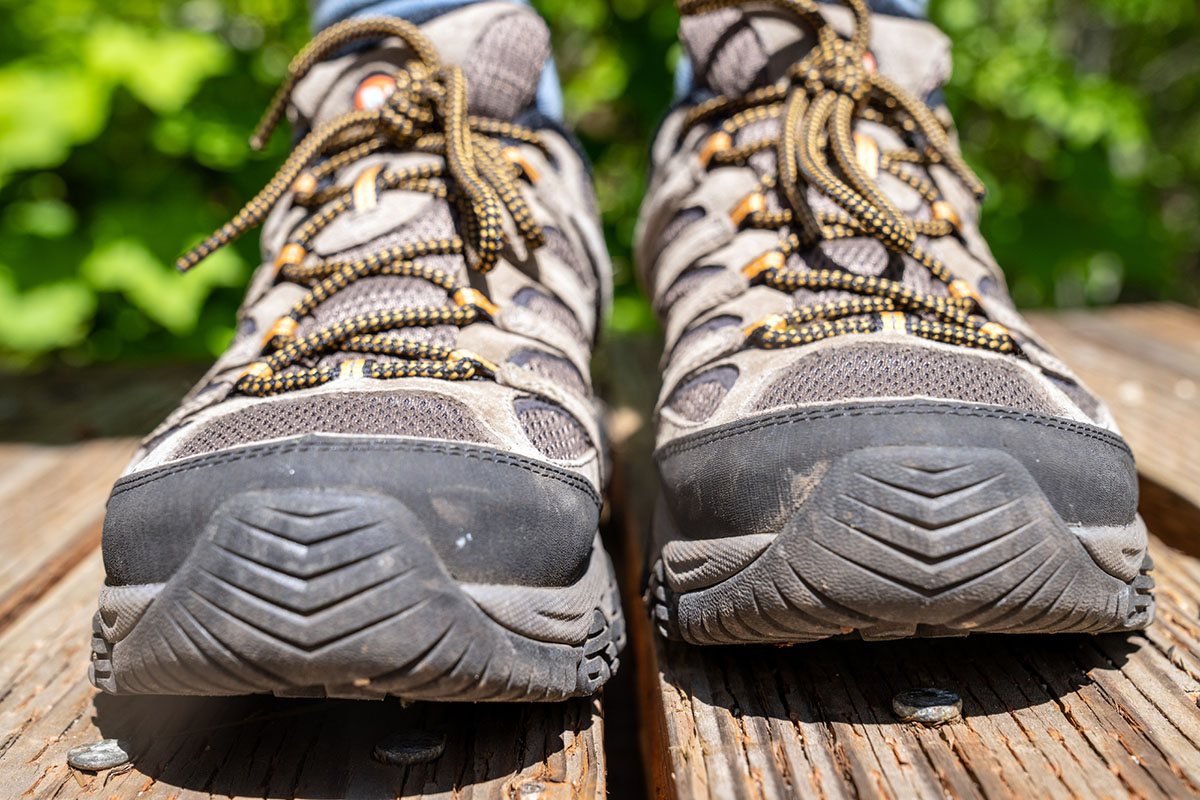
2. Try Shoes with the Right Socks
Wearing the type of socks you plan to hike in is essential when trying on shoes.
Thick hiking socks can make a significant difference in fit and comfort.
3. Break Them In
It’s advisable to break in new hiking shoes before hitting the trails.
Wear them during short walks to ensure they fit well, and make adjustments as necessary to prevent blisters on your adventure.
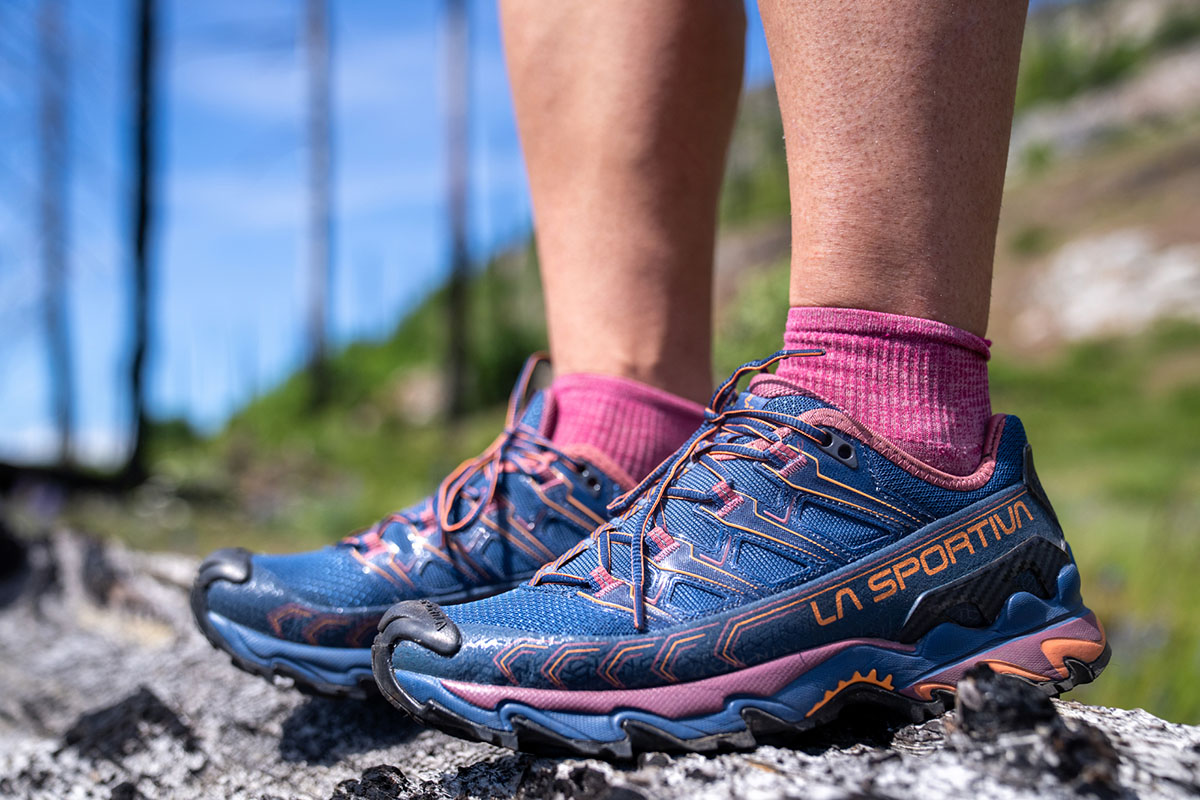
4. Consider Special Features for Comfort
Features such as cushioned insoles, moisture-wicking liners, and shock-absorbing midsoles can enhance comfort during hikes.
Pay attention to these elements as they can significantly improve your experience on the trail.
Pros and Cons of Popular Hiking Shoe Brands
Merrell
- Pros: Comfortable fit, great traction, various styles.
- Cons: May not be durable for very rugged use.
Salomon
- Pros: Excellent grip, waterproof options, stylish designs.
- Cons: Higher price point.
Adidas
- Pros: Lightweight, good for casual hikers, stylish.
- Cons: Less support for more rugged terrains.
KEEN
- Pros: Superior comfort, good arch support, wide toe box.
- Cons: Bulkier than other brands.
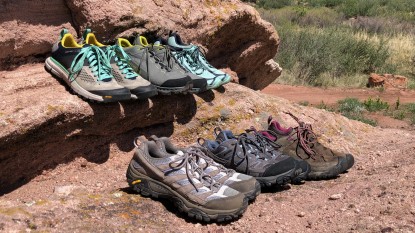
FAQs About Hiking Shoes for Beginners
1. What should I look for when buying my first pair of hiking shoes?
Look for comfort, fit, support, and traction. It’s essential to try them on with the socks you plan to wear while hiking.
2. Are hiking shoes different from regular sneakers?
Yes, hiking shoes are designed specifically for rugged terrains and provide additional support, traction, and durability compared to regular sneakers.
.jpg)
3. How much should I expect to spend on a good pair of hiking shoes?
Prices can range from $100 to $200 depending on the brand and features. Investing in a good pair will enhance your hiking experience.
4. Can I wear my hiking shoes for everyday activities?
Absolutely! Many hiking shoes are designed to be versatile and can be worn for casual outings or everyday use.
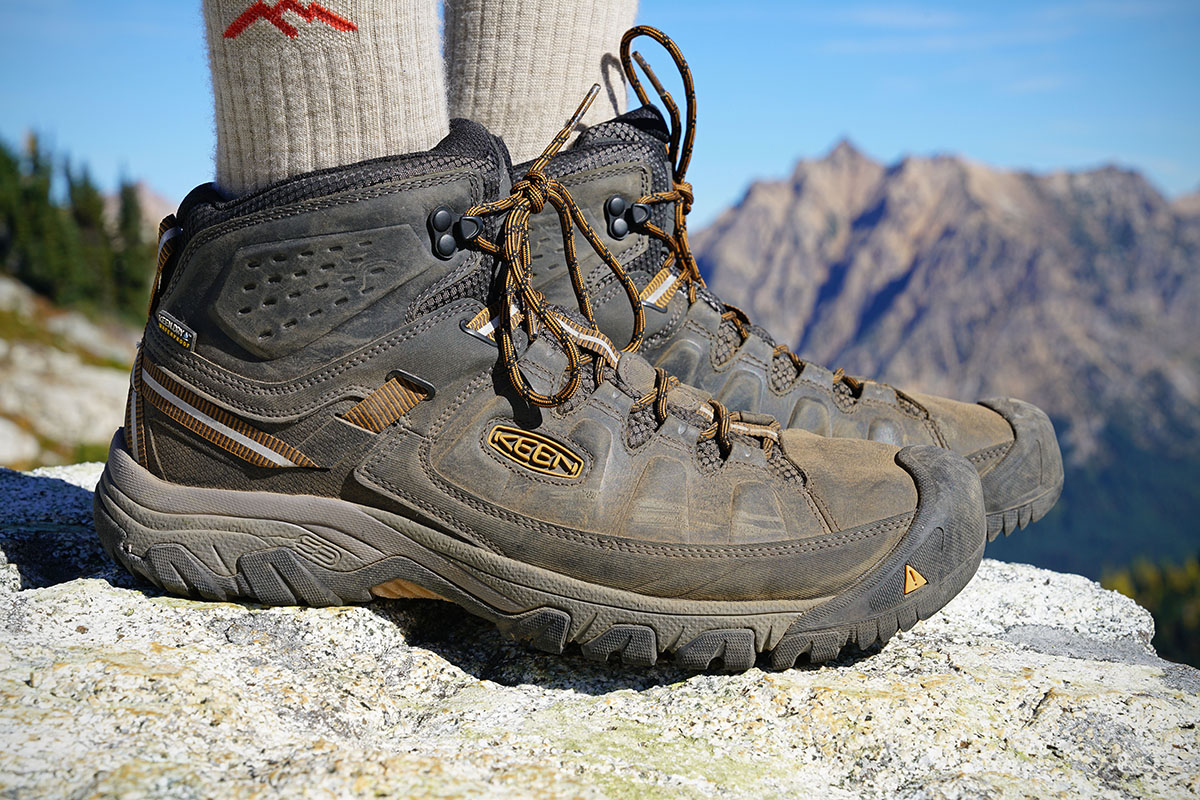
5. How do I ensure my hiking shoes last longer?
Keep them clean, allow them to dry properly after use, and store them in a cool, dry place to prolong their life.
6. Should I break in my hiking shoes before a long hike?
Yes, it’s essential to break in your shoes to avoid blisters. Take short walks or hikes to ensure they fit comfortably.

7. What type of socks should I wear with hiking shoes?
Choose moisture-wicking socks specifically designed for hiking, preferably in a thickness that matches your shoe fit.
8. Do I need waterproof hiking shoes?
Waterproof shoes are beneficial if you plan to hike in wet conditions or if you will encounter streams or muddy paths.
9. Are heavy hiking boots better than lightweight hiking shoes?
Not necessarily. Lightweight shoes can provide sufficient support for beginners, while heavy boots are more suitable for those tackling challenging terrains.
10. Can I find good hiking shoes on a budget?
Yes, many brands offer affordable options without sacrificing quality. Look for sales or outlet stores for great deals.
Conclusion: Step into Adventure!
Choosing the best hiking shoes for beginners can significantly enhance your outdoor experience.
Be sure to consider comfort, fit, support, and the type of terrain you will be hiking.
With the right footwear, you’ll be prepared to explore nature and create unforgettable memories.
So lace up those shoes and hit the trails—adventure awaits!